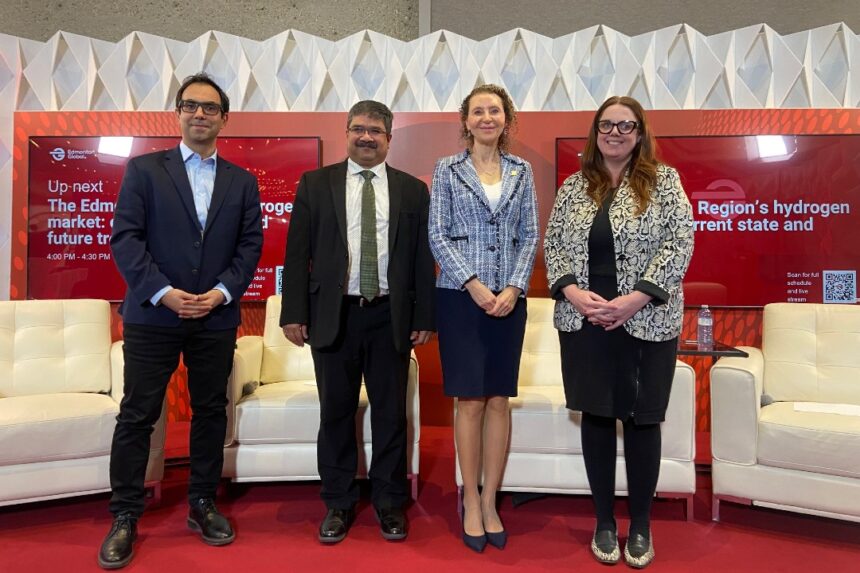The University of Alberta has officially opened its doors to the future of clean energy with the launch of the Centre for Hydrogen Innovation, marking a significant milestone for our city’s growing reputation as a hydrogen hub.
I visited the gleaming new research facility yesterday, where excitement was palpable among researchers, industry partners, and government officials gathered for the ribbon-cutting ceremony. Walking through the state-of-the-art laboratories, I couldn’t help but feel we were witnessing a pivotal moment for Edmonton’s energy landscape.
“This centre represents more than just research—it’s about positioning Edmonton at the forefront of the global transition to cleaner energy,” Dr. Amina Rahman, the centre’s newly appointed director, told me as we toured the facility. Her eyes lit up when describing the potential applications of their work, from transportation to industrial processes.
The $42-million investment comes at a crucial time as Alberta navigates its energy future. The province has committed $15 million to the initiative, with federal contributions of $18 million and industry partners providing the remainder. This collaborative funding model reflects the broad support behind hydrogen as a key component of Edmonton’s economic diversification strategy.
Edmonton Mayor Amarjeet Sohi, who attended the launch, emphasized the centre’s alignment with the city’s economic goals. “This positions our city as not just a traditional energy powerhouse, but as an innovation leader in the energy systems of tomorrow,” he said, referencing the Edmonton Region Hydrogen Hub’s ongoing work since its establishment in 2021.
What struck me most during my visit was the bridge being built between academic research and practical applications. The centre has already secured partnerships with three major energy companies operating in northern Alberta, though specific projects remain under wraps until formal announcements next month.
Dr. Thomas Chen, an engineering professor involved with the centre since its planning stages, shared some insights while showing me their hydrogen storage research lab. “We’re working on innovations that could reduce production costs by up to 30% within five years,” he explained, demonstrating a prototype that uses locally-developed catalysts to enhance hydrogen production efficiency.
The establishment of this centre builds on Edmonton’s growing reputation in the hydrogen sector. Last year, Air Products announced construction of its $1.6-billion net-zero hydrogen energy complex in northeast Edmonton, expected to be operational by 2027. The Edmonton Region Hydrogen Hub has identified our area as having among North America’s lowest hydrogen production costs.
For everyday Edmontonians, the implications could be substantial. Beyond the estimated 320 direct and indirect jobs the centre will create over five years, the innovations developed here may eventually power our buses, heat our homes, and help decarbonize our industrial processes.
Graduate student Leila Patel, who’s been working on hydrogen membrane technology for the past two years, couldn’t contain her enthusiasm when I spoke with her. “Being able to work in a facility like this, right here in Edmonton instead of having to move to another country, is a dream come true,” she told me, adjusting her safety goggles before returning to her experiment.
The centre will focus on four main research areas: production methods, storage solutions, transportation infrastructure, and industrial applications. Public engagement will also be a priority, with community open houses planned quarterly beginning this summer.
As I left the facility, watching researchers already hard at work through the glass-walled laboratories, I reflected on what this means for our city’s identity. Edmonton’s energy story has always been evolving, and this new chapter might just be the most transformative yet.
For more information about the Centre for Hydrogen Innovation or upcoming public events, visit the University of Alberta’s Faculty of Engineering website or contact the centre directly through their community engagement office.
In a city that has long powered Canada through traditional energy resources, we might now be witnessing the groundwork for an equally influential future in clean energy innovation—with hydrogen leading the way.







